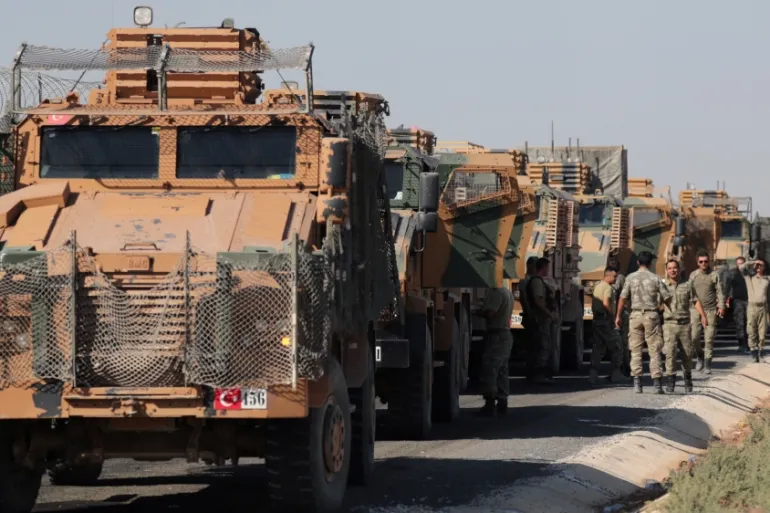The Syrian National Army (SNA), supported by Turkey, announced on this Tuesday the commencement of an operation against the Kurdish-led Syrian Democratic Forces (SDF) in the northern Syrian town of Kobani (also known as Ayn al-Arab). The declaration occurred amid the mobilization of Turkish troops along the Syrian border in anticipation of a potential invasion in collaboration with SNA forces.
A correspondent from Al Mayadeen reported that “Turkey aims to establish a security belt that is 30 kilometres wide along the Syrian border,” emphasizing that it is “nearly achieving this objective.” Furthermore, the Turkish military has constructed a concrete barrier separating Kobani from the Turkish border, with Turkish warplanes frequently observed over the city.
Reports from U.S. media have indicated that Turkey is amassing its forces near the border in preparation for a potential incursion.
According to a report by the Wall Street Journal (WSJ), a U.S. official stated, “A Turkish cross-border operation could be imminent.” The WSJ further noted that a significant concentration of SNA fighters, along with Turkish uniformed commandos and artillery, is now positioned near Kobani, a city in northern Syria with a predominant Kurdish population. Turkey began this military build-up two weeks prior, coinciding with the seizure of power in Damascus by militants from Hayat Tahrir al-Sham (HTS), which is classified as a terrorist organization by the UN.
Turkey’s historical yearn for dominating parts of Syrian lands!
Since 2012, Kurdish forces belonging to the People’s Protection Units (YPG) have taken control of Kurdish-dominated areas in Syria, following the onset of the civil war in 2011. Turkey has actively sought to thwart Kurdish aspirations to establish contiguous regions within Syria along its southern frontier, running from Afrin in the northwest through Kobani in the central north to Hasaka in the northeast.
Initially, Turkey supported ISIS but later launched multiple invasions into northern Syria to prevent the establishment of a Kurdish region. In 2015, the U.S. military allied with the YPG to form the SDF, which occupied territories beyond traditional Kurdish regions, including areas with oil fields and agricultural lands. Since the end of the war in 2019, the U.S. has aimed to maintain Syria’s division under sanctions, hindering rebuilding efforts.
Kurdish official Ilham Ahmed urged then-President-elect Donald Trump to avert a new Turkish invasion, warning that Turkey’s ambitions could lead to disastrous consequences. A representative from Turkey’s embassy in Washington did not provide a prompt response to the WSJ’s inquiries for comments.







